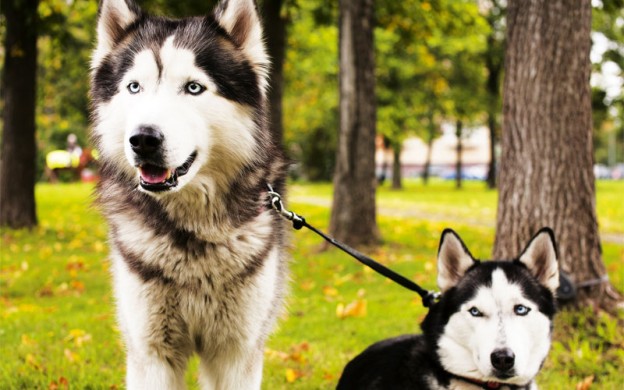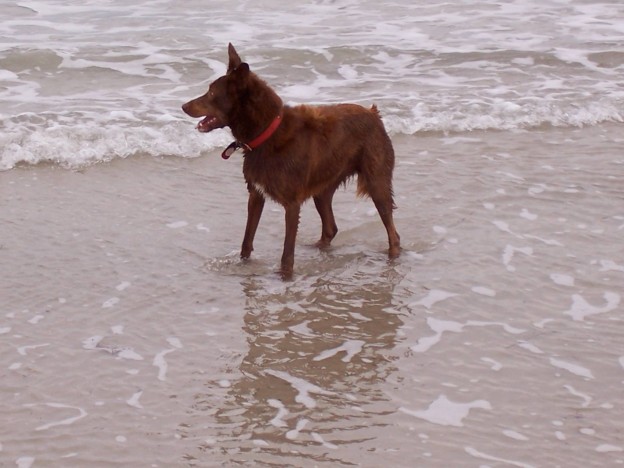
Assistance dogs are vital for people not capable of living independently, so the job of raising assistance puppies to take on this role is a very important responsibility, writes Kylie Baracz.
Taking on a puppy and raising it to become an assistance or therapy dog is a tough job. The young canine spends its first 16 months living and training with its raisers before leaving to take on the important role of looking after disabled, blind or elderly patients.
It is not for the faint-hearted but is very rewarding, says Amanda Hope from Assistance Dogs Australia (ADA).
“To become a puppy raiser you need time and patience. Some of the criteria for being a puppy raiser include not being employed full–time, if you have children they need to be school-aged, having a secured and fenced backyard, able to attend weekly puppy training classes, and are happy to have a puppy living inside your house,” says Hope.
“When the puppy spends the first 16 months of its life with a puppy raiser, they will be fully supported by the Assistance Dogs Australia K9 trainers. Puppies go everywhere with their raisers so they can become accustomed to a wide range of environments.”
Many people are hesitant to become puppy raisers as it is difficult to let go of the puppy when it goes into its new home. Assistance Dogs Australia employee Debby Quinn, who has raised a puppy for ADA, says the benefits of raising an assistance dog make the heartache well worth it. “Although there were some tears, it is great knowing that Paws is going to become an assistance dog and be the best friend to someone with a physical disability — and make a huge difference to their life,” she says.
According to Hope, there are different types of assistance dogs with very different jobs to do.
Service dogs
Service dogs are trained to assist people with physical disabilities, providing freedom and independence by performing tasks such as picking up dropped items like keys and phones, opening and closing doors, pressing the buttons at traffic lights and alert barking if their recipient is in trouble or falls out of their wheelchair. Service dogs also have full public access rights and are allowed on public transport.
Companion dogs
Companion dogs are trained to support children and adults who would benefit from the companionship of a well-trained dog in a home environment. They are also trained to perform tasks such as picking up dropped items, offering emotional support, love and companionship and breaking down barriers and reducing social isolation.
Facility dogs
Facility dogs are trained to be companions to everyone at care facilities, such as nursing homes and children’s hospices.
Tiggy and Amanda
Amanda McKenzie was born with Cerebral Palsy. Before her service dog Tiggy appeared, Amanda’s day-to-day experiences were painful and difficult. Here is what Amanda says about how an assistance dog changed her life.
“The man in my life is an exuberant black Labrador named Tiggy.
“My knight in shining black fur completed specialised training with Assistance Dogs Australia and has been my right-hand man as a service dog for three years. I was born with Cerebral Palsy and am prone to painful muscle spasms and dislocations.
“Tiggy makes life less frustrating and more enjoyable because he is able to do the things that I find difficult or impossible. He is a whiz at retrieving dropped items from the floor.
“He accompanies me to work where he loves getting documents off the printer. He is also very accustomed to pressing the traffic buttons for me in town or paying for my coffee.
“Tiggy uses his booming voice to summon help when life goes pear-shaped. A kiss and a wicked wag of his tail is all the motivation required to live life to the max!”
Assistance Dogs Australia
Assistance Dogs Australia trains Labradors and Golden Retrievers. The dogs are usually placed with their recipients at two years of age, after careful consideration by the K9 team to ensure a perfect match between the dog and their recipient. Each dog takes two years to train and costs $27,000. They are given to their recipients free of charge.
Think this is for you?
To enquire about/become a puppy trainer, head to the Assistance Dogs Australia website at www.assistancedogs.org.au for all the information and the application form, or call them on 1800 688 364 for more details.







